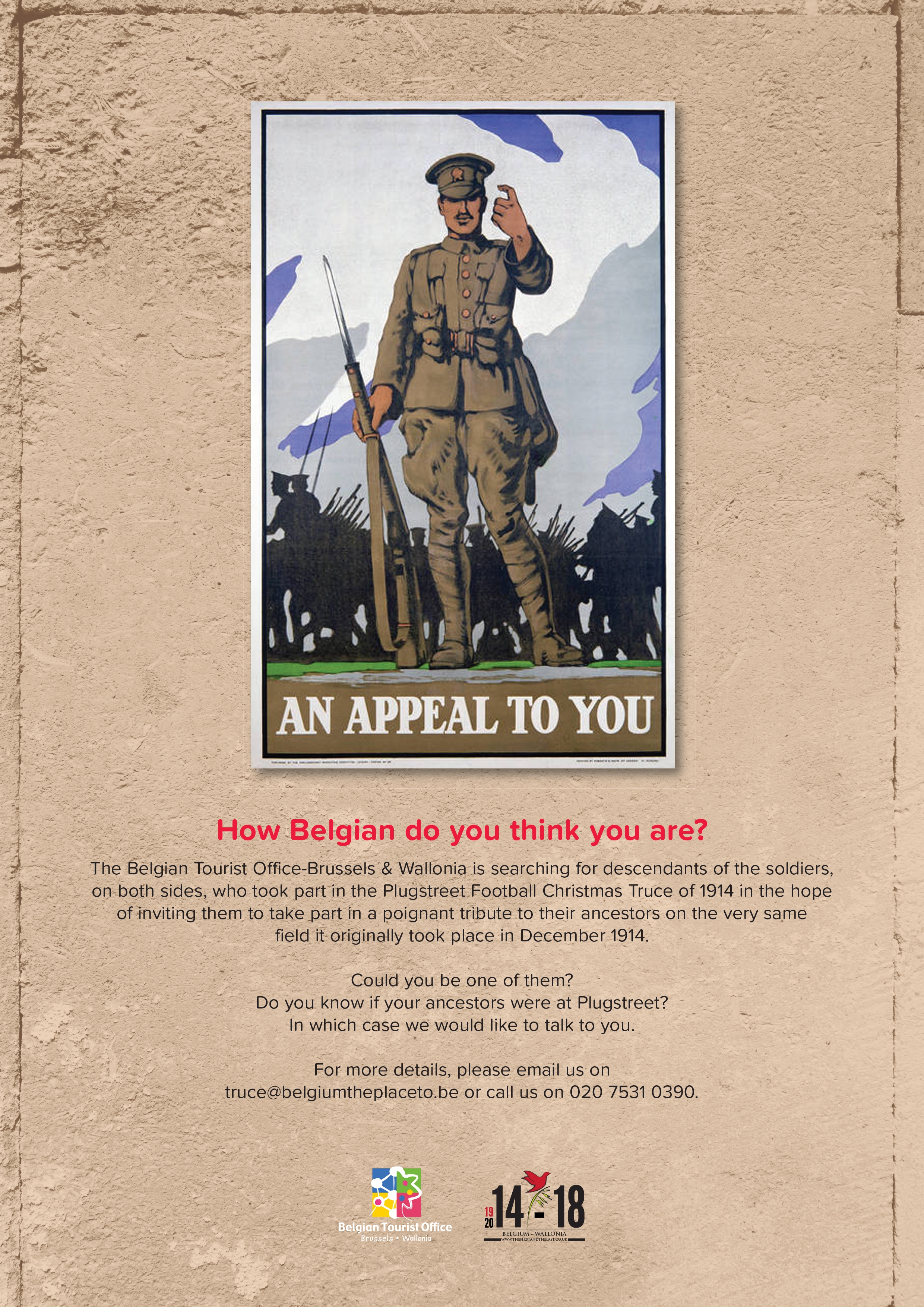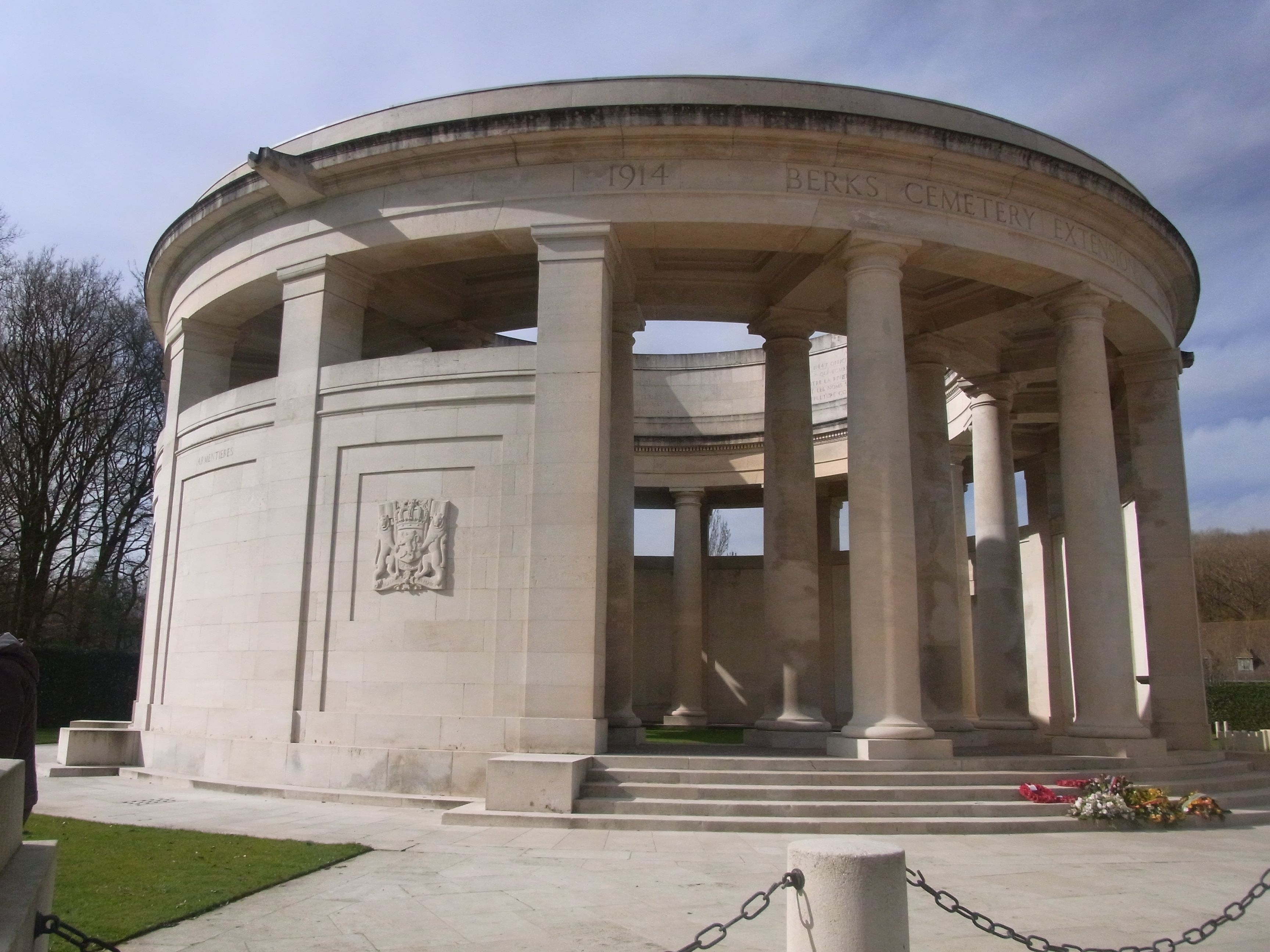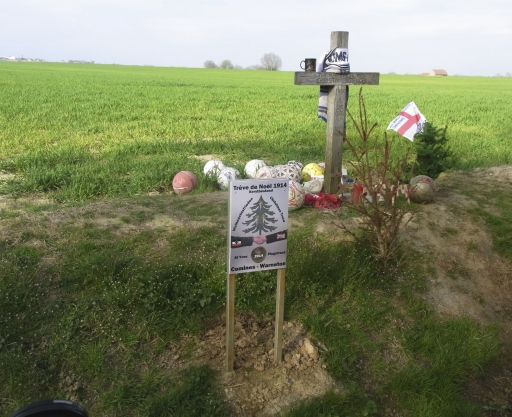European football’s governing body, UEFA, has announced plans to mark the 100th anniversary of the Christmas truce on the Western Front when troops from both sides emerged from their trenches to swap presents and play football.
The leaders of the countries whose soldiers took part in the series of unofficial ceasefires have been invited to remembrance events in Belgium in December 2014.
As part of the commemorations, UEFA is planning to put up a monument in the fields near the village of Ploegsteert where British and German troops played the best-known of their impromptu Christmas football games in 1914.
The announcement comes as Belgian tourism officials are appealing for descendants of the soldiers on both sides to come forward with the aim of bringing them together in tribute on the same spot.

UEFA’s President, Michel Platini, will address a remembrance service at St. Martin’s Church in Ypres, close to Ploegsteert, on 17th December, the eve of the twice-yearly European Union summit.
In a brief statement, the former French international captain, said: “This remembrance ceremony pays homage to the soldiers who, a century ago, expressed their humanity by coming together to play football, thereby opening an important chapter in the construction of European unity and serving as an example for today’s young people to follow.”
The leaders of Belgium, Britain, France, Germany, Ireland and Italy have been invited to the commemorations, together with the presidents of their national football associations.
The official war history of the German Army’s 133rd Saxon Regiment records that the Germans won the Ploegsteert game 3-2.
The writer, Sir Arthur Conan Doyle, now best remembered as the creator of the Sherlock Holmes detective stories, described it as “one human episode amid the atrocities which have stained the memory of war.”
Françoise Scheepers, Director of the Belgian Tourist Office-Brussels & Wallonia in London, said she was “absolutely delighted” that UEFA had chosen to honour such a poignant moment of contemporary history.
She told Centenary News: “The town of Comines-Warneton (which includes Ploegsteert) is thrilled at UEFA’s decision to erect a monument on the site where the match originally took place, and is planning a series of events in 2014 to commemorate the Christmas truce at Plugstreet.”
“The town remains determined however to ensuring that its commemorations will not just be a one-off and that it will always remain committed to the remembrance of all of those who sacrificed their lives on its soil.”

The Ploegsteert Memorial to officers and men of the forces of the British Empire who have no known grave
Ploegsteert, known to the British as ‘Plugstreet’, remained close to the front line throughout the First World War. Winston Churchill served in the area following his resignation from the British Government over the abortive Gallipoli campaign in 1915.
A new interpretation centre, the Plugstreet 14-18 Experience, opened here In November 2013 aimed at giving visitors the information they need to get the most from a visit to the nearby battlefields.
In the autumn of 2014, it will host an exhibition dedicated to the work of the British humorist, Bruce Bairnsfather, creator of the First World War ‘Old Bill’ cartoons and a witness to the Christmas truce.
There will also be an exhibition dedicated to the truce itself, featuring items from German private collections. It will go to Ploegsteert in November as part of a tour of Belgium, France, Germany and the UK.
More details of the appeal by the Belgian Tourist Office-Brussels & Wallonia to find descendants of those who took part in the Christmas truce can be found by clicking here.
Further information about the commemorations is due to be released in due course.
Sources: UEFA press release and Belgian Tourist Office-Brussels & Wallonia
Images: Peter Alhadeff, Centenary News, and Belgian Tourist Office-Brussels & Wallonia
Posted by: Peter Alhadeff, Centenary News
